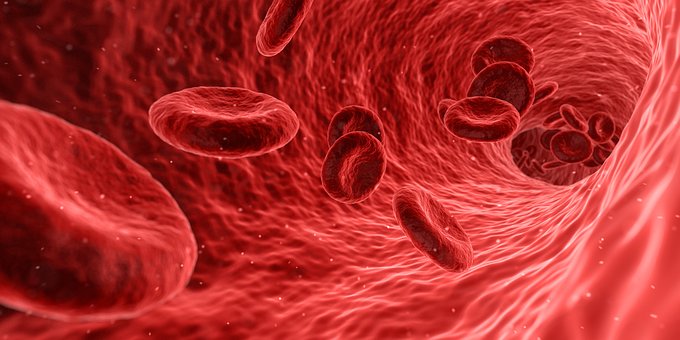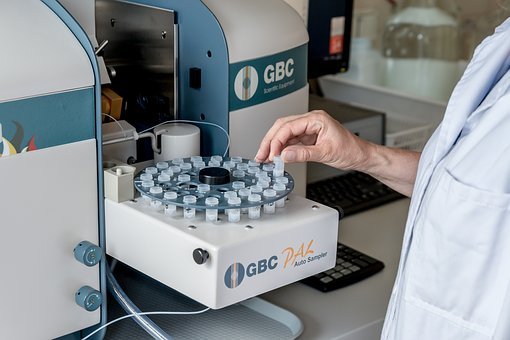Biopsia Liquida - Liquid Biopsy
Avevo deciso di dare una svolta, e così ho iniziato a leggere e fare ricerche su argomenti un po’ più “scientifici”. Fatto. Così giorno 18 cioè due giorni fa ho scritto questo articolo sulla “biopsia liquida”.
L’ho fatto per rendere più interessanti i miei articoli e tentare di salire sul podio. Poi due eventi. Il post pubblicato proprio giorno 18 va sul podio. Evviva…
Giorno 20, oggi, giorno programmato alla pubblicazione di questo post, vedo la rassegna stampa mattutina e che ti trovo… un articolo sullo stesso argomento di questo post.
Nulla di più, lo pubblicherò lo stesso… disponibilità del pc permettendo, anche perché recentemente ho cercato di avere una piccola scorta di articoli per evitare l’ansia della scrittura giornaliera.
Ed allora eccolo:

fonte: pixabay - CC0 Creative Commons
Un rapporto speciale pubblicato da American Scientific tiene sotto controllo alcune ricerche che certamente saranno disponibili a breve o forse un po’ più in là, che influenzeranno la vita dell’uomo cambiandone il modo di essere, di lavorare, di interpretare, di comportarsi.
Alcune ricerche riguardano la salute ed in particolare la diagnosi, altre ancora riguardano le malattia, la loro cura e il loro monitoraggio.
È notorio che il momento della diagnosi è particolarmente delicato in quanto permette di poter aggredire la malattia, qualunque essa sia, in tempo. Pertanto una diagnosi precoce è senza ombra di dubbio un obiettivo di tutti gli staff medici di ricercatori.
Tra i mali più aggressivi oggi esistenti il tumore rappresenta forse, a causa della varietà di tipologie esistenti, quello più importante e quello in cui la scienza si sta impegnando di più per limitarne i danni ed arrivare alla sua sconfitta.
Ed in effetti già alcune neoplasie specifiche si sono trasformate nel tempo da mortali a non mortali, assicurando addirittura grazie alle cure sperimentate, un buon tenore di vita ai malati.
La diagnosi, la cura ed il monitoraggio, dicevamo, sono molto importanti, così come la tecnologia che ci permette di effettuarli.
Nel caso del tumore la biopsia rappresenta un intervento invasivo atto a prelevare le cellule tumorali per l’analisi successiva in laboratorio. Altri accertamenti, precedenti alla biopsia, si riferiscono a tecniche di visualizzazione del tumore.
Al fine di diminuire tempi e le difficoltà della biopsia, anche e soprattutto in funzione del luogo fisico dove si trova il tumore e la difficoltà materiale di raggiungerlo attraverso una vera e propria operazione, viene fuori uno strumento, una tecnica potremmo dire, che prende il nome di “biopsia liquida”.

fonte: pixabay - CC0 Creative Commons
Più di un’azienda ha trovato investimenti corposi per la realizzazione di esperimenti su pazienti per lo sviluppo di questa tecnica che si basa essenzialmente sull’analisi del cosiddetto DNA circolante del tumore detto ctDNA, che è possibile rilevare nel sangue. Si tratta in estrema sintesi di verificare dei marcatori, degli elementi che caratterizzano la malattia che possono essere trovati nel sangue attraverso un’analisi dello stesso.
Attraverso quindi l’analisi o anche solo rilevandone la presenza si potrà procedere, si spera in un prossimo futuro, ad una diagnosi precoce o comunque ad una mappatura dello stesso dna che evidenzierà, almeno questo potrebbe essere un obiettivo, quello che oggi può essere rilevato solo dopo che il tumore ha preso forma e consistenza, e solo dopo averlo raggiunto per effettuare una biopsia.
Certo allo stato dei fatti questo non è stato ancora raggiunto, non si ha cioè la possibilità di effettuare un’analisi su pazienti sani al fine di prevenire un tumore.
I test si stanno sviluppando su persone già affette dalla malattia, vedi tumore alla prostata o ai polmoni, e tendono ad evidenziare come questo metodo possa rilevare non solo la progressione della malattia, non solo l’eventuale resistenza ai farmaci prima che gli effetti negativi cioè i sintomi si facciano sentire sul paziente, ma anche possa evidenziare ciò che una classica biopsia non può assicurare e cioè di minimizzare quei casi in cui il prelevamento del tessuto con biopsia classica dia luogo a un prelevamento parziale e non si riesca a raggiungere determinate cellule ma solo alcuni frammenti lasciando magari al proprio posto (quindi non analizzabili) cellule limitrofe o cellule non raggiungibili, che siano più pericolose o più sviluppate.
Non esiste allo stato un esame per diagnosticare il cancro precocemente e deve essere chiaro che la diagnosi precoce di tumore, ad oggi non può farsi con un semplice esame del sangue.
Questo è vero, ma ci stanno lavorando.
Nota:
Il presente articolo è stato scritto dopo la lettura e l’approfondimento su riviste o siti scientifici e non, quali:
- Le scienze.
- Fondazione Veronesi.
- AZFastNet.
NON ha obiettivi di divulgazione scientifica, ma semplicemente informativi a carattere generale. La necessità della sintesi inoltre potrebbe aver dato luogo ad inesattezze dal punto di vista scientifico.
I had decided to make a change, and so I started to read and do research on some more "scientific" subjects. Done. So day 18 that is two days ago I wrote this article on "liquid biopsy".
I did it to make my articles more interesting and try to get on the podium. Then two events. The post published just day 18 goes on the podium. Hurray ...
Day 20, today, day scheduled to publish this post, I see the morning press review and that I find you ... an article on the same topic of this post.
Nothing more, I will publish the same ... PC availability permitting, also because recently I tried to have a small stock of articles to avoid the anxiety of writing daily.
And then here it is:
A special report published by American Scientific monitors some research that will certainly be available shortly or perhaps a little further, which will influence the life of man by changing his way of being, of working, of interpreting, of behaving.
Some researches concern health and in particular the diagnosis, others concern the disease, their treatment and their monitoring.
It is well known that the moment of diagnosis is particularly delicate as it allows to be able to attack the disease, whatever it is, in time. Therefore, an early diagnosis is without a doubt an objective of all the medical staff of researchers.
Among the most aggressive evils that exist today, the tumor is perhaps due to the variety of existing types, the most important one and the one in which science is more committed to limit the damage and get to its defeat.
And in fact, some specific neoplasms have changed over time from mortal to non-fatal, ensuring even thanks to the tried and tested treatments, a good standard of living for the sick.
The diagnosis, treatment and monitoring, we said, are very important, as well as the technology that allows us to carry them out.
In the case of the tumor biopsy represents an invasive intervention to withdraw the tumor cells for subsequent analysis in the laboratory. Other tests, prior to the biopsy, refer to tumor visualization techniques.
In order to reduce the times and the difficulties of the biopsy, also and above all according to the physical place where the tumor is located and the material difficulty to reach it through a real operation, an instrument comes out, a technique we could say, that takes the name of "liquid biopsy".
More than one company has found substantial investments for the realization of experiments on patients for the development of this technique which is essentially based on the analysis of the so-called circulating DNA of the tumor called ctDNA, which can be detected in the blood. In short, it is a matter of verifying the markers, the elements that characterize the disease that can be found in the blood through an analysis of the same.
Through the analysis or even by detecting its presence we can proceed, hopefully in the near future, to an early diagnosis or at least to a mapping of the same DNA that will highlight, at least this could be a goal, what can now be detected only after the tumor has taken shape and consistency, and only after having reached it to perform a biopsy.
Of course, this has not yet been achieved, meaning that it is not possible to carry out an analysis on healthy patients in order to prevent a tumor.
The tests are being developed on people already suffering from the disease, see prostate or lung cancer, and tend to show how this method can detect not only the progression of the disease, not only the possible resistance to drugs before the negative effects ie the symptoms are felt on the patient, but also can highlight what a classic biopsy can not ensure and that is to minimize those cases in which the withdrawal of tissue with classic biopsy gives rise to a partial withdrawal and can not reach certain cells but only some fragments leaving perhaps in their place (therefore not analisable) neighboring cells or unreachable cells, which are more dangerous or more developed.
There is no such thing as an examination to diagnose cancer early and it must be clear that the early diagnosis of cancer, to date can not be done with a simple blood test.
This is true, but they are working on it.
Note:
This article was written after reading and in-depth reading in scientific or non-scientific journals or websites, such as:
- The sciences.
- Veronesi Foundation.
- AZFastNet.
It does not have objectives of scientific divulgation, but simply informative of a general nature. The necessity of the synthesis could also have given rise to inaccuracies from the scientific point of view.
Un buon post. Però ci sono alcune precisazioni da fare (sono medico e per molti anni ho lavorato in ospedale nel dipartimento oncologico) . Mi hai dato spunto per un post. Grazie
Gentilissima @fulviaperillo, ringrazio per il commento, ma vorrei precisare come l'articolo non abbia valenza medico-scientifica, come già ho scritto in seno ad esso. E' stato scritto tenendo conto della deontologia della professione giornalistica e del principio della prudenza evitando cioè d'ingenerare facili speranze, come la deontologia giornalistica insegna in tema di minori, malati, e ancor altro...
L'articolo ha voluto sviluppare certi temi (la novità, la ricerca futura, la speranza fors'anche) e non altri. E' certamente riassuntivo e per niente esaustivo, come del resto voleva essere.
Il tuo post sarà certamente gradito... ma spero non per fare precisazioni al mio post, quanto per avere un'altra visione, ancorchè con taglio medico scientifico sulla notizia che, lo ripeto era semplicemente il fatto che "l'American Scientific tiene sotto controllo alcune ricerche..." che ritiene in futuro potranno evolversi positivamente.
Un saluto e a presto! Grazie.
Non intendevo fare precisazioni al tuo post, solo esprimere alcuni concetti che vi si collegano. Grazie a te
Se usi il tag scienze ti trovano anche altri utenti della comunita' scientifica italiana e il tuo post potrebbe ricevere piu' voti!